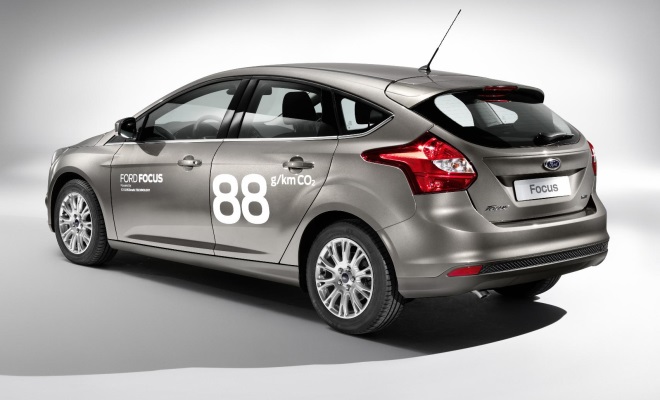
Unsurprisingly, many motorists would like to swallow their cake and yet still somehow have it when it comes to buying a greener car. A recent study commissioned by Ford found that while 71% of Europeans say fuel economy is a major factor when buying a car, only half as many – 35% – are prepared to pay a premium for a more efficient vehicle.
This discrepancy arises despite the fact that 53% of the 6,000 people questioned agreed that climate change is the biggest challenge facing society, while 57% said they wanted to become more environmentally responsible.
The survey was carried out in Denmark, France, Germany, Italy, Spain and the UK, where fortunately there are a wide variety of government-backed schemes to help buyers make better long-term decisions. In the UK these efforts range from CO2-based car taxation to programmes like the Green Deal, designed to encourage the uptake of renewable energy sources such as solar panels and wind turbines.
While it might cost a fair whack to buy an electric car and power it from the sun, the ongoing costs ought to be much lower than continuing to throw petrol at the problem.
Also encouraging is the news that 68% of the people questioned said they considered fuel economy when driving. Not that there is much evidence of this on the average motorway in the UK.
Perhaps few people appreciate that a car capable of 50 miles per gallon at 70mph will manage only 43mpg or so at 80mph. This sharp decrease in efficiency is due to the inescapable physics of overcoming wind and tyre resistance as speed builds. Over 100 miles of motorway the higher speed will trim 11 minutes of journey time but will eat up a couple of quid’s worth of additional fuel. And if your car can’t manage 50mpg at 70mph (and most can’t) the cost of going faster will only get worse.

Better cars will of course ease the problem, and this is happily being tackled at the European level with tough CO2 targets for all car manufacturers designed to improve average fuel consumption. By 2015 the average European new car will need to emit no more than 130g/km, falling to just 95g/km by 2020. Each manufacturer has its own target, and those failing to shoulder their bit of the task will face nasty fines.
Most makes are well on the way to achieving the required numbers, with Ford highlighting the 88g/km achieved by its Focus ECOnetic, and the 87g/km result of the smaller Fiesta ECOnetic. The Fiesta gets its result with a small, high-power petrol engine, while the Focus relies on an efficient diesel. Other manufacturers are achieving similar results, with Volkswagen due to introduce an 85g/km diesel-powered Golf BlueMotion this summer.
Official numbers are one thing and real world economy is another, of course. Improving the latter requires not just superior cars but better information for the driver. Digital instruments that reward the driver with images of leaves or trees for good driving have already emerged, while some cars that offer optional eco modes take a more direct tack, informing the driver of how many litres of fuel the mode has saved over time.

Perhaps, in the near future, instrument panels might start to take the opposite tack and tell us how much fuel our dodgy driving has wasted. Until then, it’s up to us all to do the best we think we can.
Motorists seem keen to be green – up to a point
11 January 2013
Read more about: Europe Ford fuel economy



